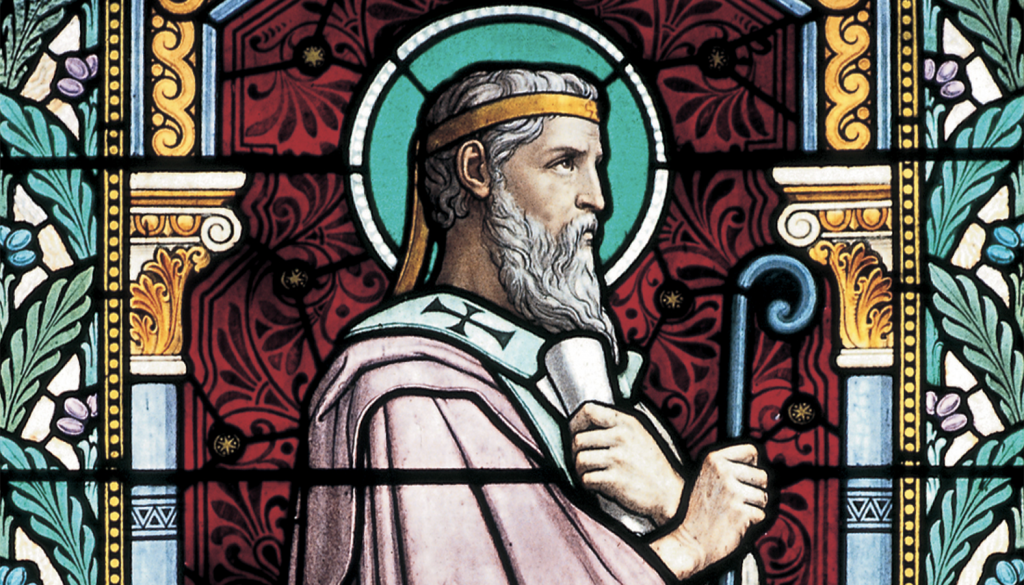St. Irenaeus of Lyons was a second-century bishop and writer in present-day France. While most of his important writings have survived, the details of his life are mostly unknown.
Irenaeus was born in the Eastern half of the Roman Empire, around the year 140. As a young man he heard the preaching of St. Polycarp, who had been personally instructed by the apostle John.
Irenaeus became a priest and served in the Church of Lyons during the late 170s. At this time, Christians were being persecuted by the government, and were struggling as a Church with several heresies.
Irenaeus was sent to Rome to provide Pope St. Eleutherius with a letter about the Montanism heresy. When he returned to Lyons, he became the city’s second bishop, following the martyrdom of the previous bishop, St. Pothinus.
As bishop, Irenaeus came up against various heretical movements, many of which insisted that the material world was evil, and not part of God’s plan. Advocates of these movements tended to claim superior “spirituality” or “enlightenment” for their supposed secret knowledge.
Recognizing these as false, Irenaeus denounced them all as direct attacks on the Catholic faith. He wrote tirelessly to refute their claims, defending Christian orthodoxy and the reality of Christ’s human incarnation. His book “Against Heresies” is still studied today. Another, the “Proof of the Apostolic Preaching,” details his presentation of the Gospel message, and focuses on Christ’s fulfillment of Old Testament prophecies.
Irenaeus died around 202. He may have been a martyr, but this is not definitively known.

